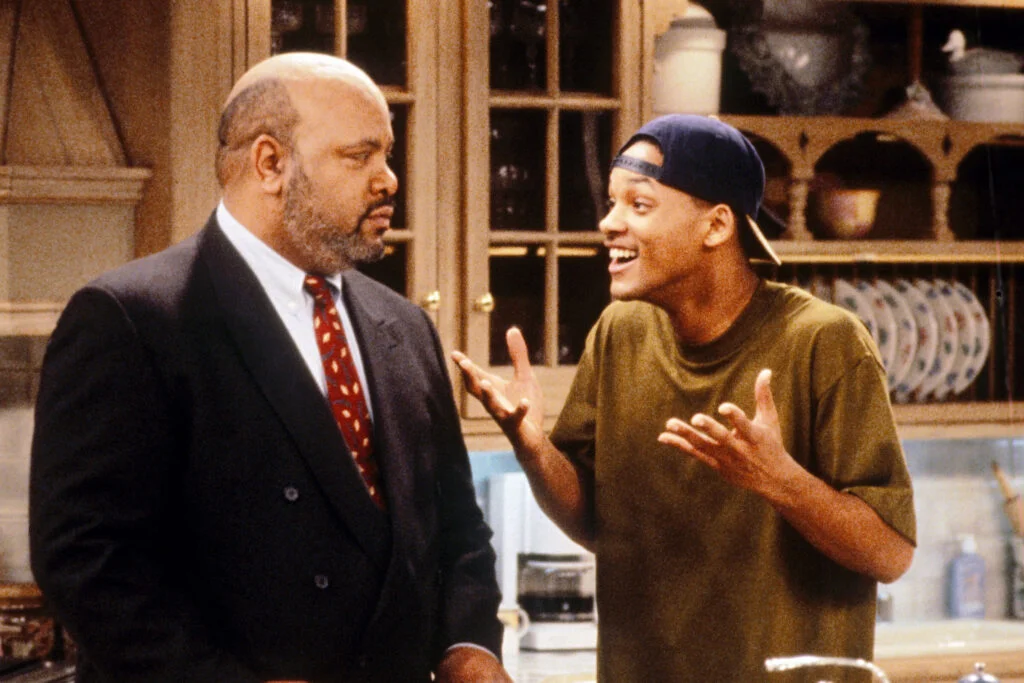Remember when all we expected from TV dads was the occasional punchline and bumbling attempts at home repairs? Those lovable goofballs who made us laugh with their antics ended up surprising us when they delivered heartfelt advice that stuck with us long after the credits rolled. These fathers may have started as comic relief, but they evolved into the emotional centers of their shows, teaching us about life, love, and what it means to be there for family when it matters most.
1. Dan Conner (Roseanne/The Conners)
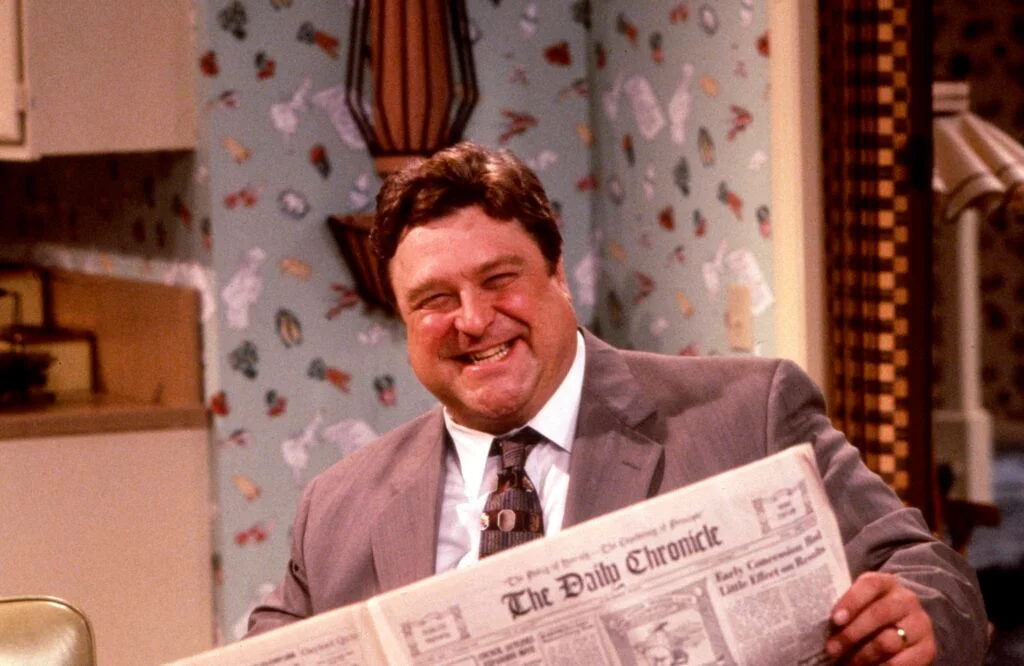
John Goodman’s portrayal of blue-collar dad Dan Conner began with plenty of laughs and practical jokes, especially when paired with Roseanne’s sharp wit. As the series progressed, Dan revealed incredible emotional depth, particularly when facing financial hardships, his daughter’s relationships, and health struggles. His evolution from jovial bear of a man to the steady rock of the family showcased how a father could be both funny and profoundly nurturing without sacrificing his masculine identity. According to People, fans can also thank Goodman for the special goodbye episode audiences viewed, as it was his idea.
Dan’s most powerful moments often came when the cameras stopped playing for laughs, like during Darlene’s premature baby crisis or when confronting his own mortality after his heart attack. His quiet strength during family tragedies proved that real fatherhood isn’t just about fixing leaky pipes or making wisecracks at the dinner table. Generations of viewers recognized their own fathers in Dan’s journey from the guy who horsed around with his kids to the man who would move heaven and earth to protect them when life got tough.
2. Philip Banks (The Fresh Prince of Bel-Air)
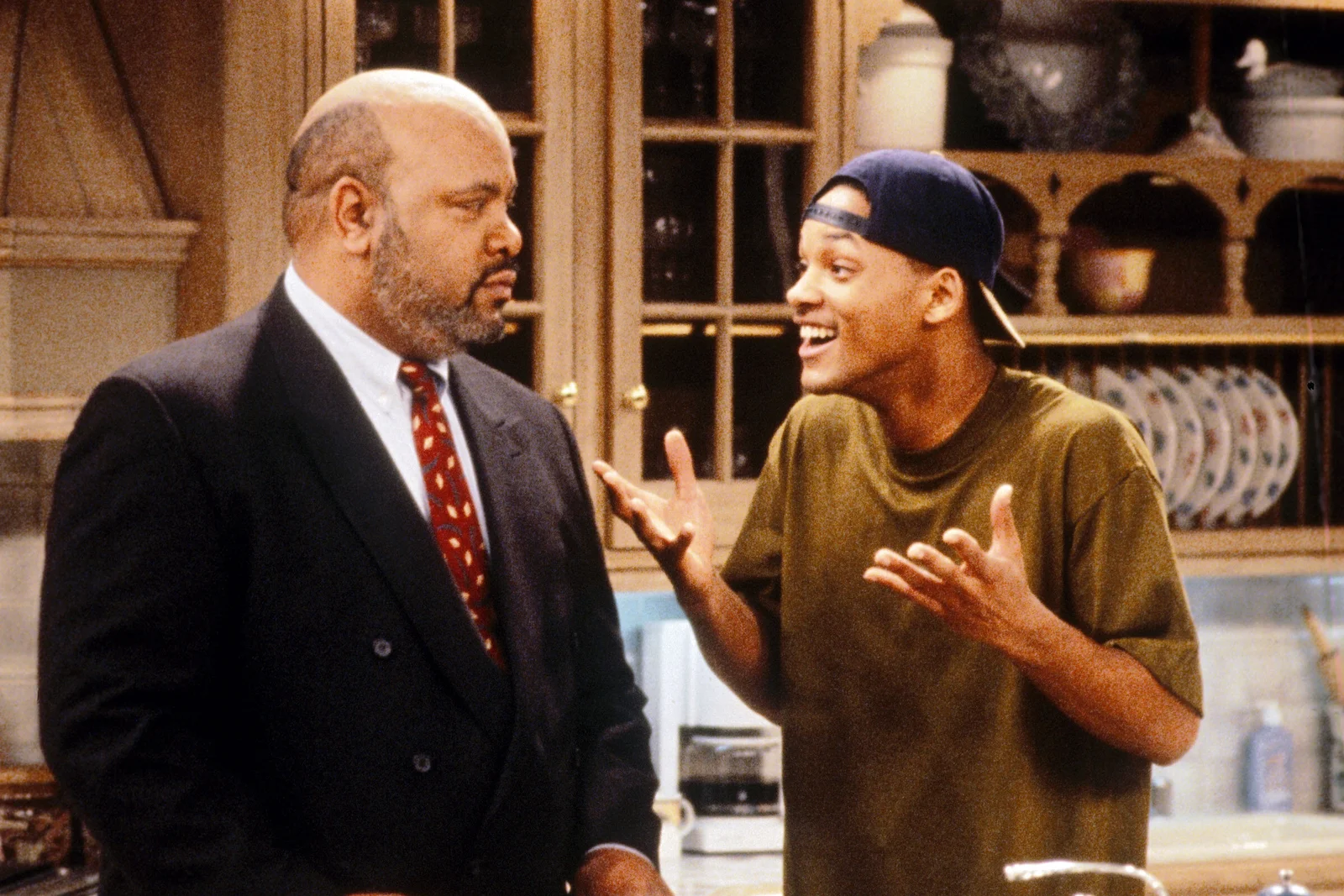
Uncle Phil started as the perfect foil for Will’s antics – the stern, easily exasperated authority figure who seemed perpetually annoyed by his nephew’s street-smart attitude. James Avery brought tremendous range to the character, gradually revealing layers of compassion beneath the intimidating exterior of a successful lawyer and judge. The transformation happened so organically that viewers hardly noticed when they began seeing Philip as the moral compass of the show, dispensing wisdom about prejudice, responsibility, and personal integrity. If anyone still isn’t convinced, Screen Rant has a whole list of ways Uncle Phil is the best dad on TV.
Perhaps no moment better exemplifies Uncle Phil’s evolution than when he comforted Will after his biological father abandoned him again, holding his sobbing nephew in a bear hug that conveyed more love than words ever could. His passionate defense of his family against discrimination, his guidance through difficult ethical dilemmas, and his unwavering support showed a depth that transcended the early “angry uncle” stereotype. For many viewers coming of age in the 90s, Uncle Phil represented the ideal father figure – demanding excellence while providing unconditional love and a shoulder to cry on when life dealt its harshest blows.
3. Tim Taylor (Home Improvement)
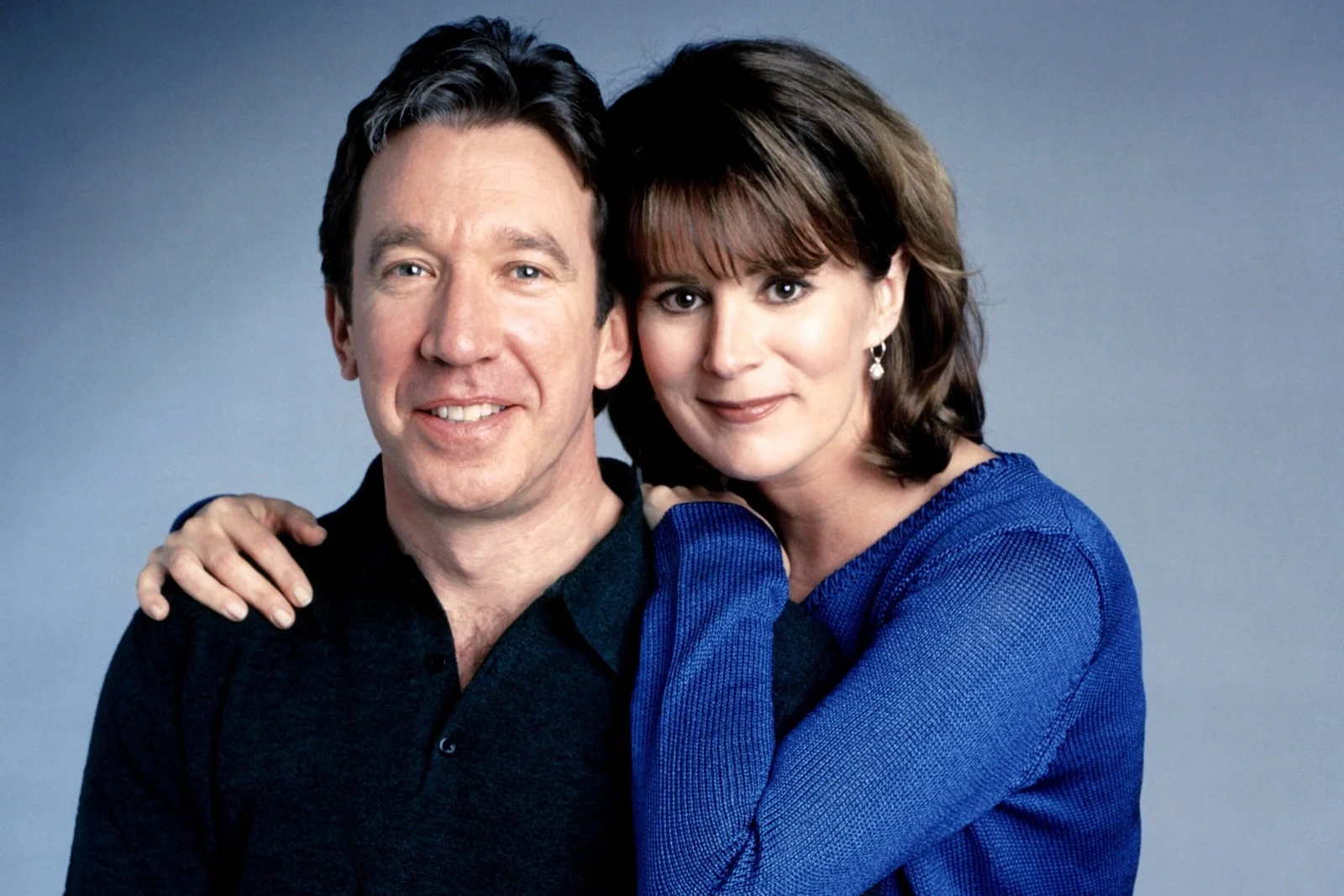
Tim “The Tool Man” Taylor burst onto our screens as the quintessential accident-prone dad whose enthusiasm for power tools far exceeded his actual handyman abilities. His bumbling mishaps on his show-within-a-show and constant misunderstandings with his wife Jill provided reliable laughs throughout the early seasons. Yet as Home Improvement progressed, Tim’s character developed remarkable emotional intelligence, particularly during his famous backyard fence conversations with neighbor Wilson, where he processed complex family dynamics. For those bewildered as to why this show ever ended, SlashFilm took on more power to solve the mystery.
The real magic happened when Tim applied these lessons at home, showing vulnerability when discussing puberty with his sons or admitting his fears about his children growing up and leaving home. Those moments when Tim set aside his macho persona to connect authentically with his family created some of television’s most touching father moments. His evolution reminded a generation of men that being a good father means sometimes putting down the power drill and picking up emotional tools instead – listening, empathizing, and validating feelings even when they make you uncomfortable.
4. Howard Cunningham (Happy Days)
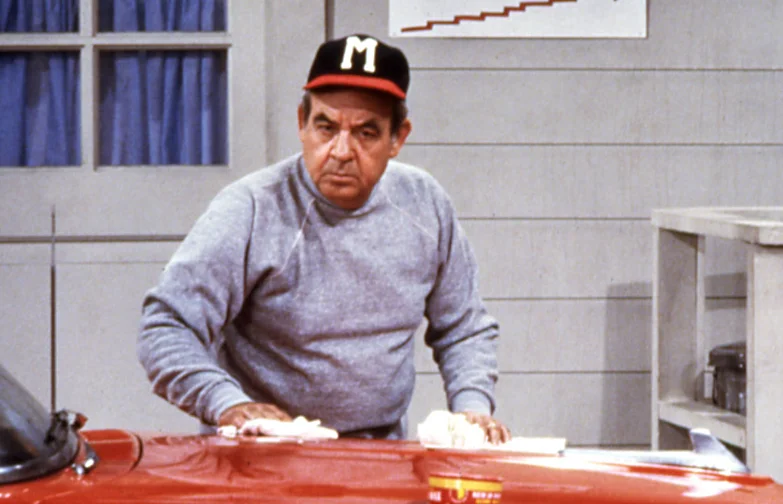
“Mr. C” began the series as the traditional 1950s father – the somewhat distant provider who read his newspaper and occasionally delivered perfunctory advice. Tom Bosley’s warm portrayal gradually transformed Howard into the heart of the show, dispensing wisdom not just to Richie but to surrogate son Fonzie as well. His transformation happened as viewers watched him struggle to understand changing times while maintaining his core values about respect, honesty, and family.
Howard’s finest moments came when he stepped beyond the stereotypical 50s father role, showing remarkable compassion and progressive thinking that belied his traditional exterior. The hardware store owner’s genuine acceptance of Fonzie – a leather-jacket-wearing rebel that men of his generation typically feared – demonstrated a capacity for growth that resonated with boomer viewers navigating their own changing world. Howard Cunningham taught us that good parenting isn’t about having all the answers but about having enough love to keep asking the right questions, even when the world seems to be changing faster than you can keep up.
5. Alan Matthews (Boy Meets World)

Alan Matthews initially seemed like television’s standard no-nonsense father, working at the grocery store and maintaining order in his household with stern glances and occasional punishments. William Russ brilliantly evolved the character beyond this starting point, showing a father learning to adapt his parenting as his children faced increasingly complex challenges in their journey to adulthood. His transformation happened gradually as he recognized that raising teenagers required more than just rules and boundaries – it demanded authentic connection and emotional availability.
The moments when Alan abandoned his tough-guy approach, like when he supported his son through heartbreak or acknowledged his own parenting mistakes, elevated him from sitcom dad to parenting role model. His willingness to admit when he was wrong – a rarity for TV fathers of that era – showed generations of viewers what healthy masculinity could look like in family relationships. Alan’s journey proved that true fatherly authority comes not from demanding respect but from earning it through consistency, empathy, and the courage to be vulnerable with your children.
6. Michael Kyle (My Wife and Kids)
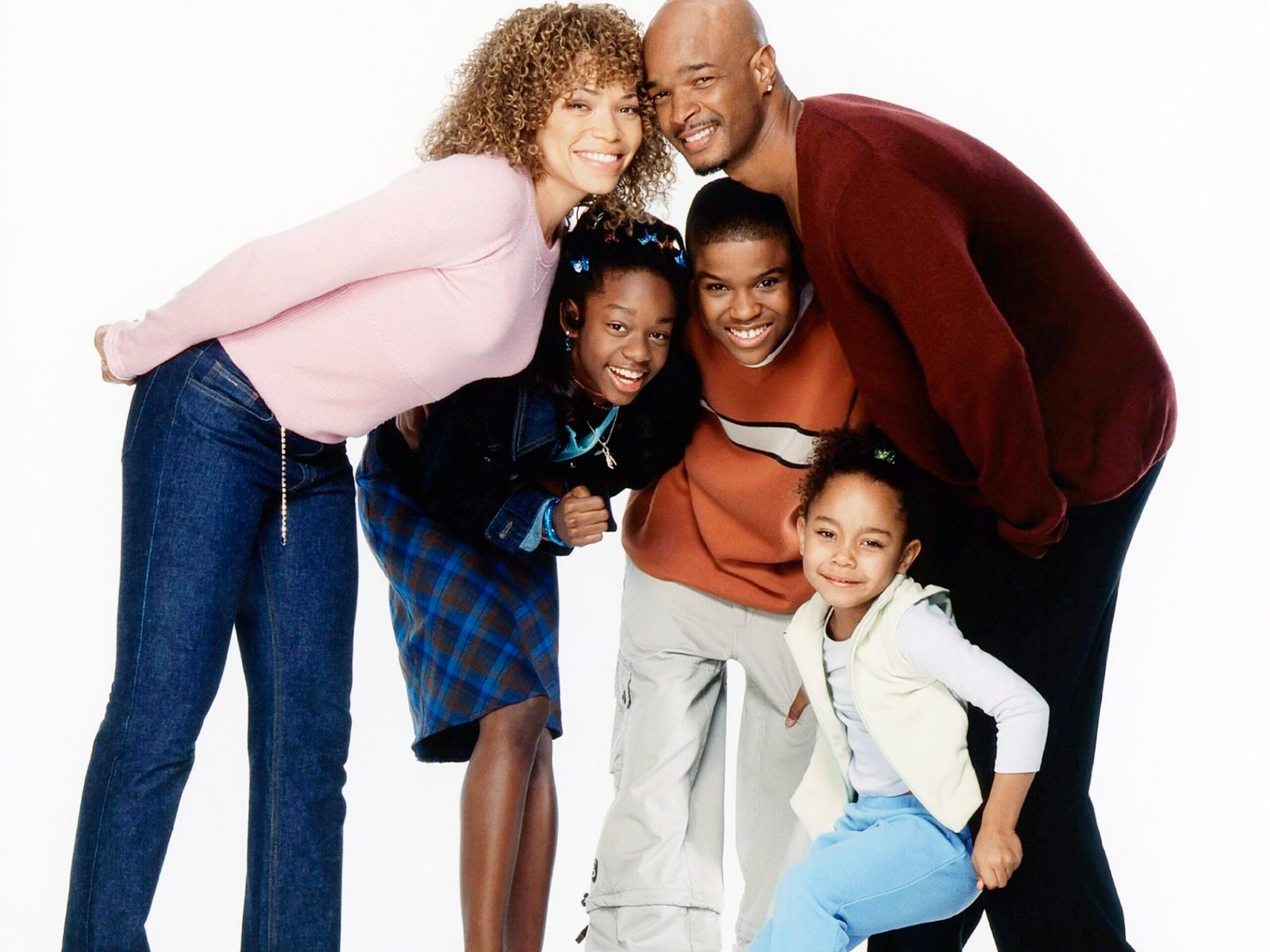
Damon Wayans brought his comedic genius to Michael Kyle, introducing viewers to a prankster dad whose elaborate schemes to teach his kids lessons often backfired spectacularly. Behind the jokes and exaggerated reactions lay a deeply intentional father determined to raise responsible children while maintaining his youthful spirit and sense of fun. The brilliance of Michael’s character development was in showing that playfulness and profound parental wisdom aren’t mutually exclusive – they can coexist in the same loving father.
When Michael dropped the antics to have heart-to-heart conversations with his children about self-respect, perseverance, and making good choices, these moments landed with extraordinary impact precisely because they contrasted with his typical comedic approach. His conversations with Junior about becoming a young father or with Claire about valuing herself in relationships revealed the thoughtful man behind the practical jokes. Michael Kyle showed a generation of fathers that maintaining your sense of humor while raising children doesn’t diminish your authority – it humanizes it, making difficult lessons more accessible during the turbulent teenage years.
7. Sandy Cohen (The O.C.)
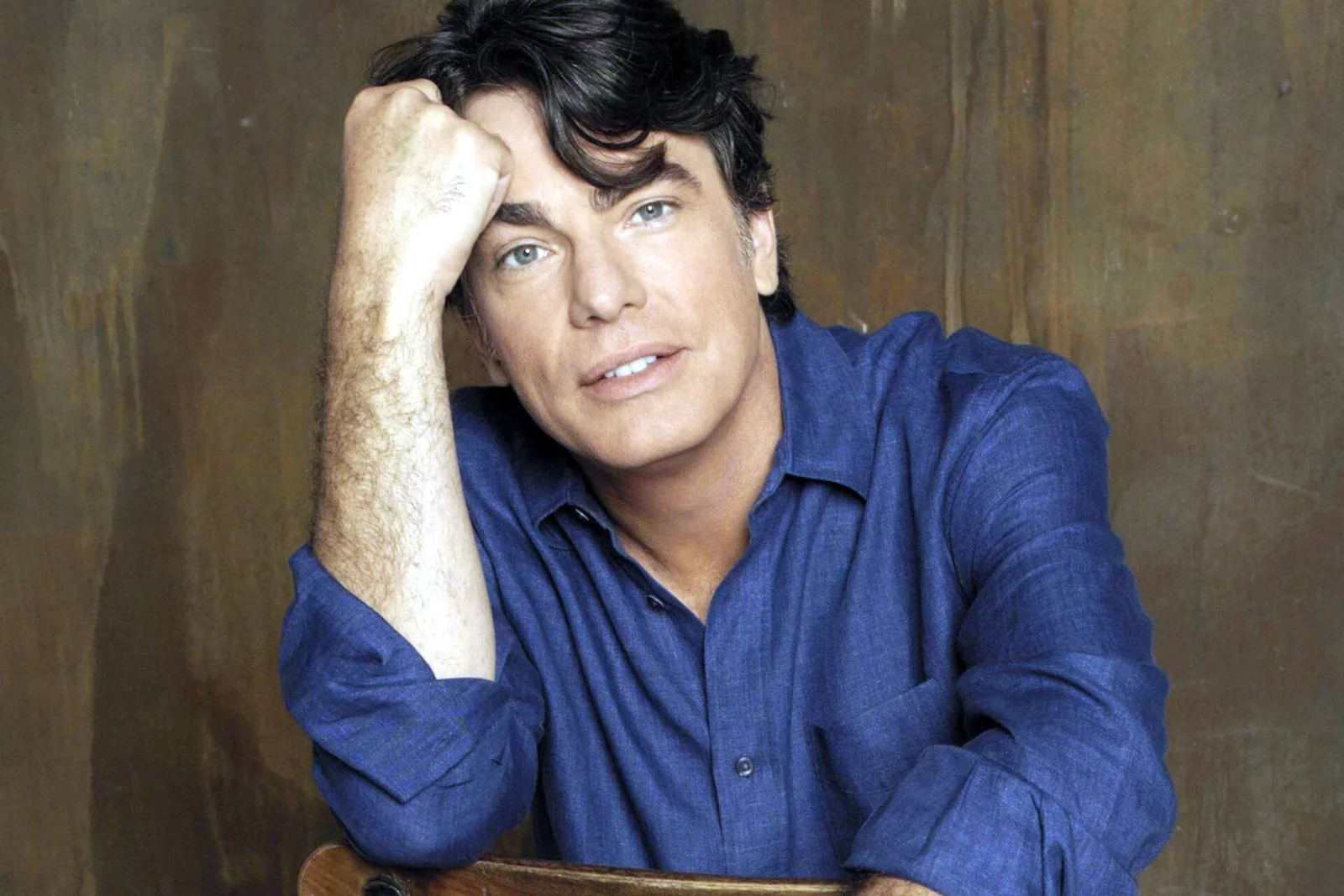
Sandy Cohen initially appeared as the quirky, eyebrow-blessed public defender with a surf addiction and a penchant for bagels – the lighthearted counterbalance to his more serious wife Kirsten. Peter Gallagher infused this character with unexpected depth as Sandy became the moral center of Newport Beach, refusing to compromise his principles despite living among the status-obsessed elite. His evolution happened as viewers watched him extend his natural protective instincts beyond his biological son Seth to include troubled teen Ryan, whom he welcomed into his home and heart.
Sandy’s finest moments came when facing ethical dilemmas that forced him to choose between social acceptance and doing what was right, consistently choosing integrity even at personal cost. His unwavering commitment to justice, combined with his ability to see the best in troubled youth, made him the rare TV father who taught by example rather than just through words. For viewers who grew up with absent or emotionally unavailable fathers, Sandy Cohen represented an aspirational vision of fatherhood – present, principled, and prepared to fight for his family against whatever challenges the privileged world of Orange County threw their way.
8. Charles Ingalls (Little House on the Prairie)
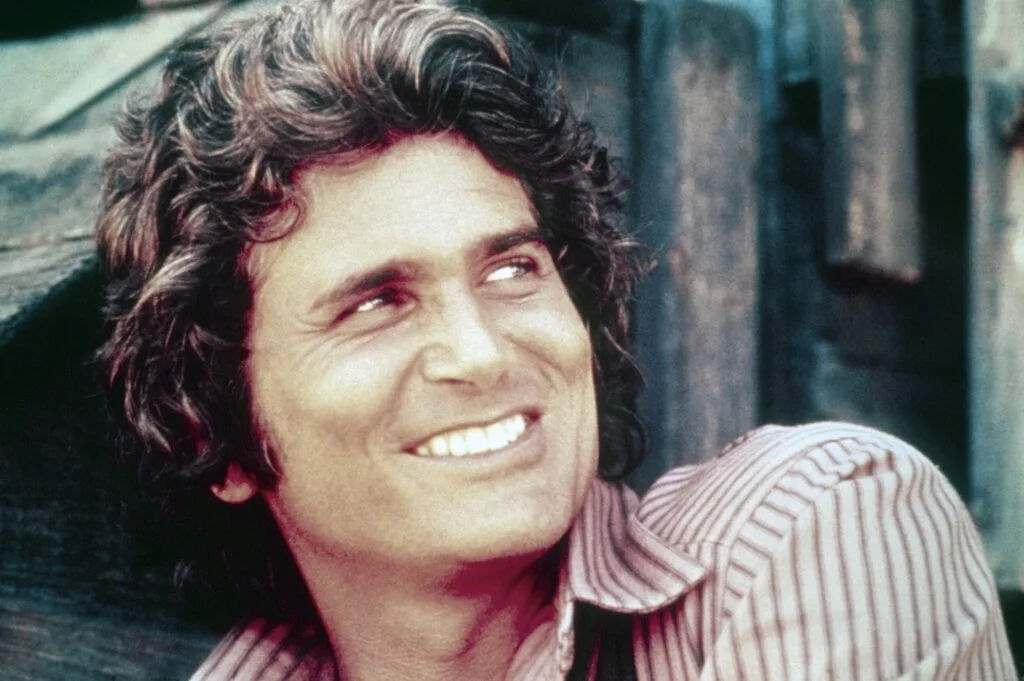
“Pa” Ingalls started as the determined pioneer and provider, building homes from scratch and wrestling the harsh prairie into submission to feed his family. Michael Landon’s portrayal gradually revealed Charles as a man of surprising emotional intelligence for his era, capable of expressing tenderness, vulnerability, and unconditional love for his daughters. His transformation unfolded gradually as viewers watched him navigate fatherhood challenges from teaching his children to read to helping them understand prejudice, loss, and the sometimes harsh realities of frontier life.
The moments when Charles set aside traditional 19th-century male stoicism to comfort a heartbroken child or express his own fears and doubts elevated him beyond the typical depiction of frontier fathers. His willingness to shed tears, admit mistakes, and embrace the full spectrum of human emotion made him revolutionary for a character set in the 1870s. Charles Ingalls showed generations of viewers that true strength isn’t found in emotional suppression but in the courage to connect authentically with your children, meeting them where they are with whatever they need – whether that’s a firm hand or a gentle embrace.
9. Carl Winslow (Family Matters)
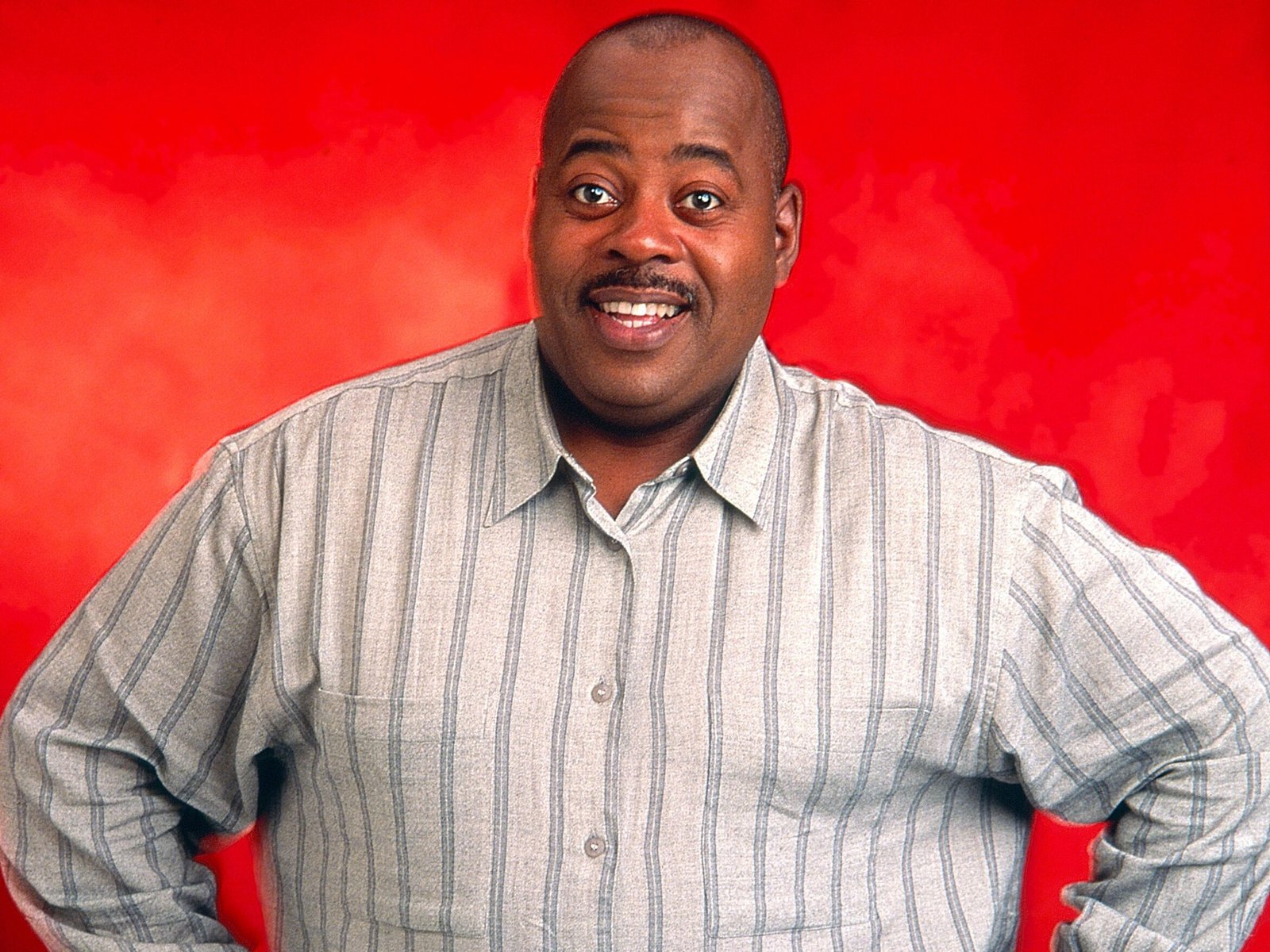
Officer Carl Winslow began the series as the perpetually frustrated cop whose patience was constantly tested by neighbor Steve Urkel’s antics and his own household’s chaotic energy. Reginald VelJohnson masterfully expanded the character beyond the “annoyed dad” trope, revealing a man of principle whose dedication to his community matched his devotion to his family. Carl’s evolution happened organically as viewers watched him navigate challenging topics from racial profiling in policing to guiding his children through the temptations and dangers of urban Chicago life.
Carl’s most powerful moments came when his tough exterior gave way to remarkable vulnerability, like when addressing his son’s brush with gang violence or his daughter’s experiences with discrimination. His journey from comic foil for Urkel’s mishaps to the show’s moral anchor showcased a Black father rarely seen on 90s television – authoritative without being authoritarian, protective without being possessive. Carl Winslow taught a generation of viewers that fatherhood requires flexibility – knowing when to be the tough cop and when to be the compassionate counselor, especially when raising children of color in a world that doesn’t always see their worth.
10. Danny Tanner (Full House)
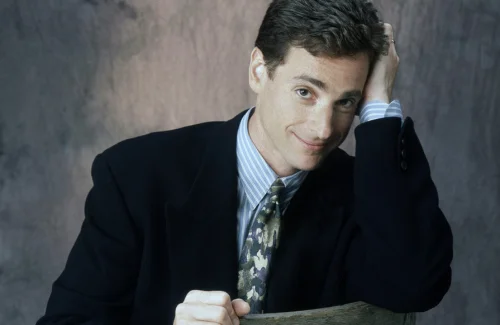
Danny Tanner began as the quintessential neat-freak widower whose obsession with cleaning provided reliable comedy as he raised three daughters with his decidedly messier brother-in-law and best friend. Bob Saget brilliantly balanced these comic quirks with moments of profound emotional honesty as Danny processed his grief while trying to create stability for his girls. His transformation became evident as viewers watched him face parenting challenges that couldn’t be solved with furniture polish – from helping D.J. navigate peer pressure to guiding Stephanie through anxiety and supporting Michelle’s independence.
The moments when Danny set aside his prepared “dad speeches” to speak from the heart about missing his wife or his fears about parenting alone revealed the depth beneath his cheerful, organized exterior. His willingness to admit when he needed help, whether from Jesse and Joey or from his daughters themselves, modeled healthy vulnerability that was revolutionary for male characters of that era. Danny Tanner showed viewers that while perfect parenting is impossible, especially after tragedy, showing up consistently with love and honesty creates a foundation strong enough to support a family through anything life throws their way.
11. Steven Keaton (Family Ties)
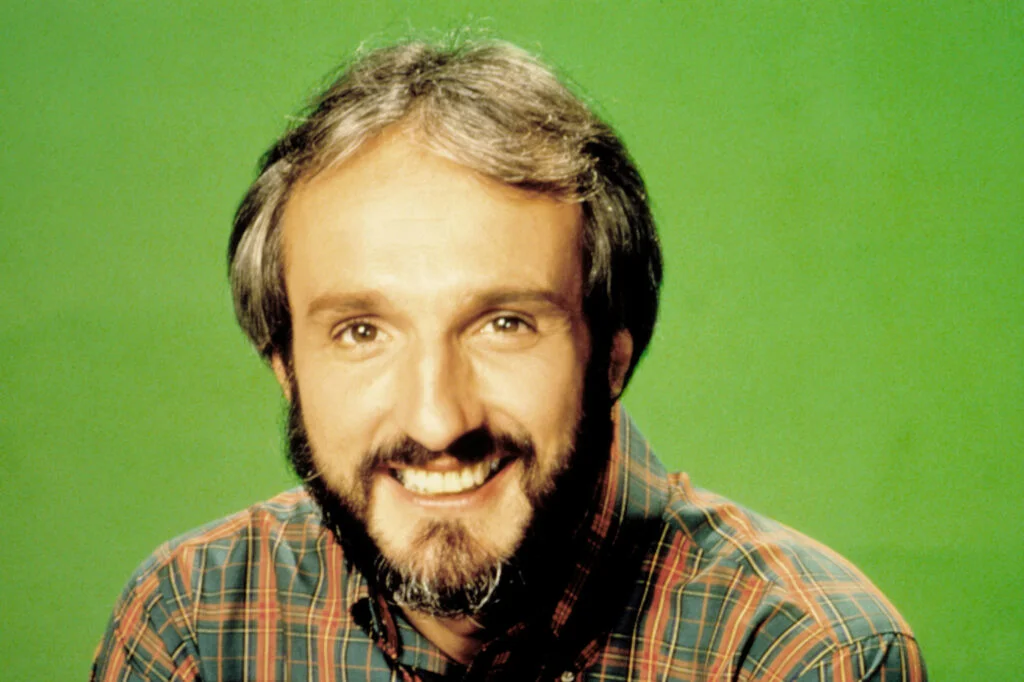
Steven Keaton was introduced as the stereotypical former hippie whose liberal values constantly clashed with his Reagan-loving Republican son Alex, creating reliable political humor throughout the series. Michael Gross developed this character far beyond the initial premise, revealing a thoughtful father whose principles were matched by his compassion and willingness to listen to opposing viewpoints. His evolution became apparent as viewers watched him navigate the challenge of raising children whose values sometimes diverged sharply from his own, finding the balance between guiding them and respecting their autonomy.
Steven’s finest moments came during conversations with Alex that transcended political differences to touch on universal truths about integrity, responsibility, and finding one’s authentic path. These father-son exchanges demonstrated that meaningful connection is possible across ideological divides when rooted in mutual respect and genuine love. Steven Keaton taught a generation of parents navigating the culture wars of the 1980s that effective fatherhood isn’t about raising children who mirror your beliefs but about raising children who think critically, stand by their convictions, and remain connected to family even when disagreements arise.
12. Jim Walsh (Beverly Hills, 90210)
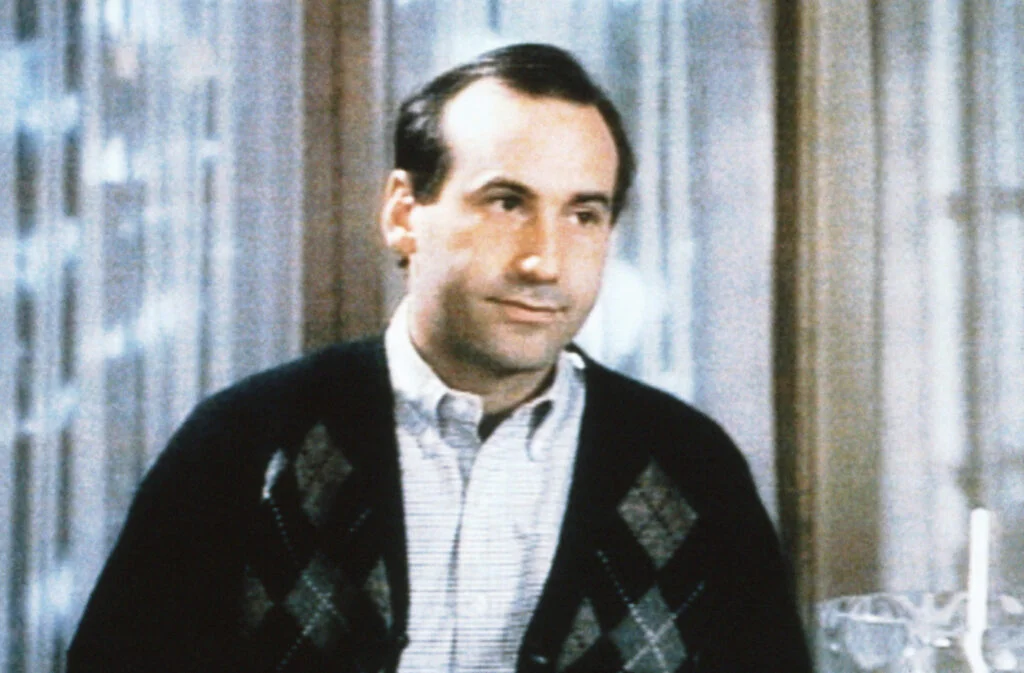
Jim Walsh initially appeared as the straight-laced Midwestern transplant to Beverly Hills, seemingly out of his depth amid the wealth and moral flexibility of Southern California culture. James Eckhouse brought surprising nuance to this character as Jim navigated the challenge of maintaining Minnesota values while helping his twins adapt to their new high-stakes social environment. His transformation became evident as viewers watched him evolve from making rigid pronouncements to asking thoughtful questions, recognizing that parenting teenagers in the 1990s required dialogue rather than decrees.
Jim’s most powerful contributions to the series came when he set aside his initial judgments to truly understand his children’s experiences, from Brenda’s relationship struggles to Brandon’s journalistic ethical dilemmas. His willingness to reconsider his positions without abandoning his core values modeled healthy adaptability in a rapidly changing world. Jim Walsh showed parents of the early 90s that maintaining authority as a father doesn’t require having all the answers – sometimes it means having the humility to say, “I don’t understand your world yet, but I’m willing to listen and learn so I can help you navigate it safely.”
The beauty of these television fathers lies not just in their humor or their heartfelt moments, but in their willingness to evolve before our eyes – mirroring our own fathers’ journeys from the men who tossed us in the air as children to the wise advisors we turned to as adults. While these sitcom dads may have entered our living rooms to make us laugh, they ended up teaching us – and perhaps our own fathers – that real strength isn’t found in having all the answers but in staying present through all of life’s questions. The best TV dads, like the best real-life fathers, didn’t need to be perfect; they just needed to be perfectly committed to growing alongside their children.

